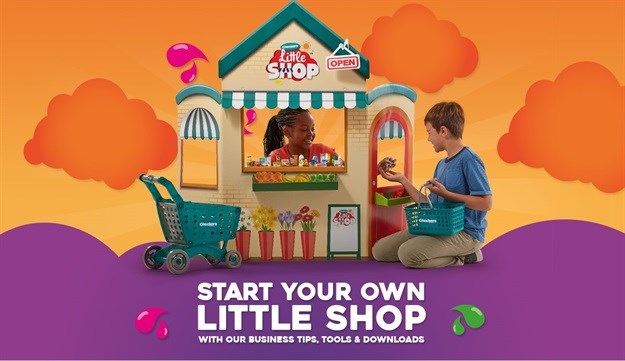Checkers is teaching kids a valuable lesson about commerce, just not the one they think

Unlike Pick n Pay, Checkers has packaged the promotion with an educational message about entrepreneurship (‘Turn into one of Tomorrow’s Tycoons’), encouraging kids to purchase a miniature shop and to post appeals for missing collectibles on social media.
They also proffer entrepreneurial advice through columns and a ‘jargon-busting’ business glossary posted on their micro-site which, if anything, prove that their marketing team hasn’t taken the chapter on matching one’s messaging to the appropriate target audience into account.
I doubt the five-year old I saw having a tantrum in the aisle of the Hypermarket cares about the value of ‘bulk purchases’ in any other context aside from bulking up his Minis Collection. If I’m very honest, the only Mini-related lesson I’m going to teach my kid probably is going to involve teaching her not to put it in her mouth to avoid choking.
The real lesson here, though, is not the one detailed by the retailer (which, according to their article, ‘17 reasons your kid should play little shop’, includes building math skills and developing negotiation strategies) but rather that businesses are ready to pay for customers.
There are over 400,000 new products created each year and that is not including entertainment products. Just look at the music industry; in five years, you will be able to buy a 20 terabyte hard drive containing all 180 million songs currently recorded in the world for R1,000 or so. That may seem laughable now but remember that in 1981 a 1.55 MB floppy disk was considered a huge storable device.
More access diminishes need for ownership
The next generation is going to have access to the entire world’s music, movies, courses and books – probably for free and in the cloud – as it becomes easier and easier to produce content and spread it around. That applies to products as well, as the need for ownership continues to diminish under the likes of rideshare, house share and tool share. Individuals are joining platforms every day that allows them to rent out their clothes, their parking spots, their furniture and even their spare time.
Anyone who has ever spent a weekend falling down the YouTube hole will tell you that there is barely enough time to explore all the things you love, which means companies hoping to attract your attention – and thus your business – are going to fork out more and more. Google and social media already decide what to show you, based on your past surfing behavior and general popularity, which means vast amounts of content are ending up on the proverbial cutting room floor. Companies are going to battle it out to make the cut, going above and beyond to be noticed.
Internet pioneers, such as Esther Dyson, have already said that consumers will soon charge companies to read their emails and visit their stores. Just as bloggers are paid more, based on their followers, customers will be paid based on their lifetime value, their circle of influence and other metrics that probably haven’t been invented it.
Commoditising attention
It is not that far-fetched either. Facebook and Twitter have already commoditised attention; companies are already spending money to gain likes and app installs. Public relations companies bribe bloggers with swag bags and pay for endorsements. Netflix employs 300 people just to work on its recommendation system to avoid sending irrelevant recommendations to their customers. 3D printing means that we will soon be able to manufacture items to our own exact liking and specification in our homes. CPM (or cost per mille) is actually a unit measurement for attention. Games, such as Angry Birds, reward players for watching advertisements with special features – it makes more money from advertisers than it could from in-app purchases.
Giving customers a service or a price cut is no longer enough. There has to be something in it for them. Companies should be sending micro-jobs to our phones, while we wait in queues and reward us with mobile money at the checkout, or simply send us shopping vouchers every time we walk through the door via geolocation software.
The concept of rewarding someone just for shopping at your store is still linked to spend, but as competition (and alternatives) heats up, soon it will be linked to merely listening to or viewing what the brand has to offer.
Kids influence up to $500bn a year
If Checkers did not charge the brands featured in this exercise - staples such as orange juice and washing powder - to be featured as Minis, it certainly should have. Those images are already trending on social media. Remember why tobacco companies produced boxes of candy cigarettes (Bucky Strikes) in the 1980s? Kids build brand associations and loyalty early – and on average, see over 40,000 advertisements every year. Making sure they take note of yours is priceless if you consider the lifetime value of a customer buying the staples featured in the promotion.
Children already intuitively know that they have some sway over mom and dad and marketers know that they are the gateway to parents’ attention. In the US alone, kids influence up to $500bn a year in household purchasing and influence is a commodity worth paying for.
Next time you find yourself rounding up to R150 to receive your Angry Bird token or miniature tub of margarine, do not admonish yourself too harshly for being a sucker. The rewards are only going to get bigger.




































